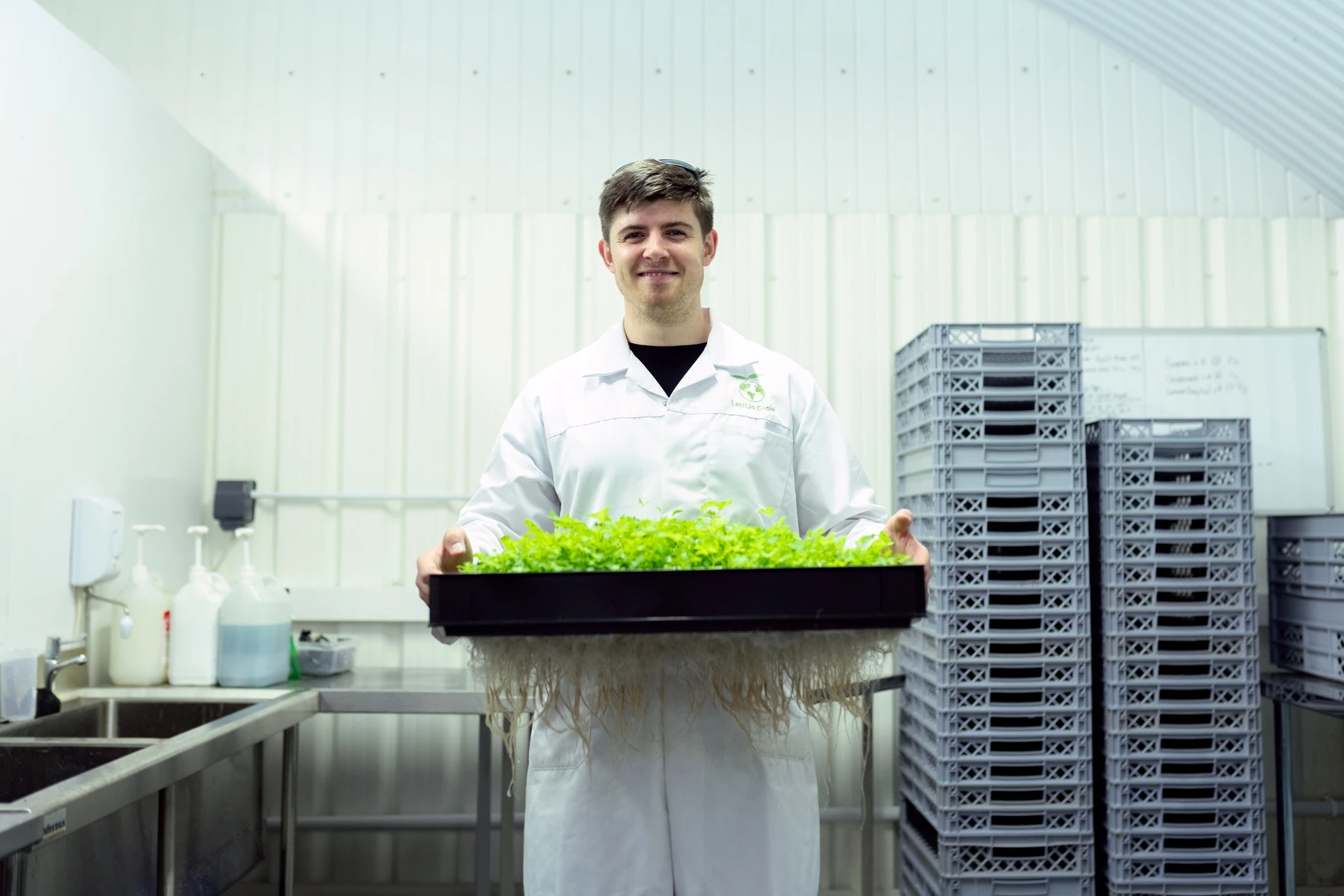
£1m Yorkshire insect laboratory created for sustainable “bioconversion” research
Fera Science has invested £1m into creating a UK “first of its kind” insect research laboratory at its base at leading bioscience hub, York Biotech Campus (YBC).
The expansion involves converting a former storage unit on site into a purpose-built insect research unit and will see the business’s presence at YBC grow by over 2,000 sq ft.
The laboratory, which is also one of the first in Europe, will allow Fera to upscale its current insect services and help meet the needs of clients from across the food industry by being able to show insect bioconversion at scale and replicate the nature of insect farming in a factory.
Insect bioconversion is the process of feeding insects waste to create additional materials, such as protein or fertiliser, and is a sustainable practice that reduces waste, provides alternative food for animal feed, and reduces the environmental impact of sourcing for protein in already depleted areas, ultimately helping to combat climate change.
The laboratory will not only support Fera’s clients, but will also enable collaborations with university partners, startups, insect farms, and support policy and regulatory authorities within the Department for Environment, Food and Rural Affairs (Defra).
Work on the unit started on site this month, with operational launch of the laboratory set for July 2022. In line with the launch of the new laboratory, Fera will also be expanding its team and is looking to recruit six team members across the coming months.
Damian Malins, venturing projects director at Fera Science, commented: “We’re extremely excited about opening our new insect research laboratory, as it means we’re able to deliver far more to all our clients including commercial and public sector, as well as research partners.
Liz Cashon, Innovation Campus manager at York Biotech Campus added: “We’re so pleased to have been part of supporting the design and build of this new laboratory for Fera, having worked together since it was simply a concept.
“It’s an extremely exciting laboratory to have on site and further cements the campus as playing a major role in driving forward research and innovation in the region, as well as helping to make the world a more sustainable place to live for future generations.”
Looking to promote your product/service to SME businesses in your region? Find out how Bdaily can help →
Enjoy the read? Get Bdaily delivered.
Sign up to receive our popular Yorkshire & The Humber morning email for free.








 Raising the bar to boost North East growth
Raising the bar to boost North East growth
 Navigating the messy middle of business growth
Navigating the messy middle of business growth
 We must make it easier to hire young people
We must make it easier to hire young people
 Why community-based care is key to NHS' future
Why community-based care is key to NHS' future
 Culture, confidence and creativity in the North East
Culture, confidence and creativity in the North East
 Putting in the groundwork to boost skills
Putting in the groundwork to boost skills
 £100,000 milestone drives forward STEM work
£100,000 milestone drives forward STEM work
 Restoring confidence for the economic road ahead
Restoring confidence for the economic road ahead
 Ready to scale? Buy-and-build offers opportunity
Ready to scale? Buy-and-build offers opportunity
 When will our regional economy grow?
When will our regional economy grow?
 Creating a thriving North East construction sector
Creating a thriving North East construction sector
 Why investors are still backing the North East
Why investors are still backing the North East